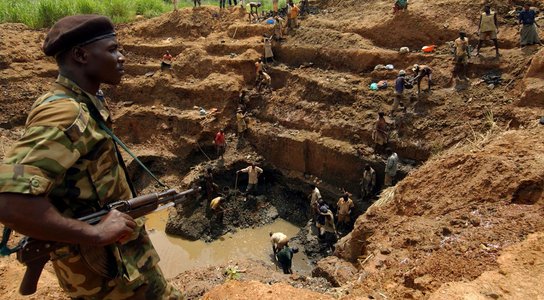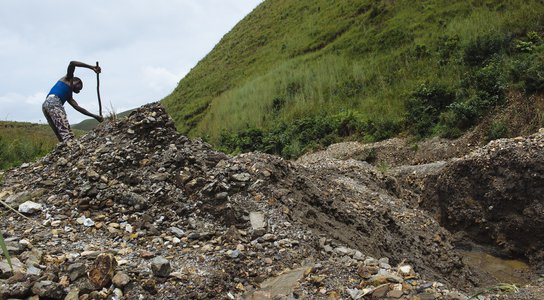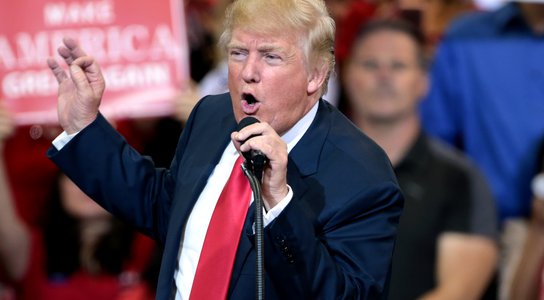Global Witness and Amnesty International have today published an open letter, highlighting their objections to the US State Department’s recent consultation on responsible mineral sourcing.
This consultation lacks clarity and transparency. While publicly billed as an effort to solicit comments on how the State Department can support efforts to ensure minerals do not fund abuses, the groups say this consultation is ultimately intended to inform a weaker substitute for the existing conflict minerals provision in Section 1502 of the Dodd Frank Act.
Carly Oboth, Policy Advisor for Global Witness said: “The State Department has been vague about the purpose and of this consultation, while it appears that some comments have been made public, we are concerned that private comments have been invited through channels other than the official e-mail address stated in the notice.
“The conflict minerals provision is a transparency law meant to bring light and scrutiny to a previously opaque and secretive trade, yet this consultation feels anything but transparent. This crucial issue for US companies, investors, and consumers deserves a public debate, not whispers intended to undermine existing law behind closed doors.”
Section 1502, and the accompanying Conflict Minerals Rule promulgated by the Securities and Exchange Commission (SEC), aim to curb the proceeds of Congo’s mineral trade fueling conflict and abuses by requiring companies to conduct checks on their supply chains.
Following a reconsideration of the Conflict Minerals Rule by the SEC and reports of the President considering waiving the rule through executive action, this consultation is the latest in a string of unwarranted efforts to undermine the integrity of the law and Congressional intent.
Oboth said: “Given our concerns with the underlying premise of this consultation, we are refusing to participate in this deeply flawed process. Through a series of backdoors and shortcuts the Trump administration is seeking to undermine the law of the land.”
While massive cuts to the State Department’s budget are being negotiated, the Department’s decision to initiate a new consultation despite a recent, public, and extensive comment period led by the SEC is puzzling.
Oboth said: “If the State Department wants to know what we all think about responsible mineral sourcing, it has an extensive catalogue of public comments at its disposal. It is far from clear what this latest consultation could add to what has already been said. Sometimes, when you don’t get the answer you want the first time, it’s tempting to ask again. But our views are clear and those at the bottom of mineral supply chains urgently need us all to do much more than talk."
The Conflict Minerals Rule core idea is that companies’ profits shouldn’t be born out of suffering and abuses. While there are very real challenges that need to be addressed to ensure minerals are responsibly sourced, we must collectively do better and build on what has been achieved to date.
Oboth added: “Instead of focusing on enforcing the existing law and working to hold companies to the highest standard, the administration is choosing to engage in a façade of goodwill while working behind the scenes to undercut this vital legislation.”
/ ENDS
Contacts
Notes to editor:
Section 1502 of the Dodd-Frank Act requires US-listed companies to determine whether they use minerals sourced from the DRC or its neighboring countries and, if so, to conduct basic supply chain checks—known as ‘due diligence’—on their supply chains to ensure they are not financing conflict or human rights abuses. Companies must annually disclose their due diligence efforts in public reports to the SEC.
Links between minerals, conflict and human rights abuses are not unique to central Africa. The US should be doing more to ensure US companies are not funding or driving conflicts. In Afghanistan, a Global Witness investigation revealed that the Taliban and other armed groups earned upwards of $20 million dollars from the trade in the semi-precious stone lapis lazuli. In Myanmar, tin has reportedly benefitted a US-sanctioned rebel group called the United Wa State Army. In Colombia and Peru, the value of illicit gold exports has reportedly surpassed that of cocaine, providing millions to FARC armed group.
For more information, please see Global Witness’ March 17 SEC Comment here.
You might also like
-
Press release Reprehensible SEC decision on conflict minerals rule undermines global efforts to source minerals responsibly
Reprehensible SEC decision undermines global efforts to source minerals responsibly
-
Press release Action to de-rail US conflict minerals rule “gift to predatory armed groups”, warns Global Witness
We are very concerned about possible action by the Trump Administration and Congress to weaken or repeal the conflict minerals provision (Section 1502) of the Dodd-Frank Act.
-
Press release An executive order suspending the US conflict minerals law would be a ‘gift to warlords and corrupt businesses’, says Global Witness
We respond to reports that President Trump is planning to issue an executive order targeting the US conflict minerals provision (also known as Section 1502 of Dodd-Frank).